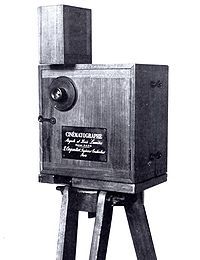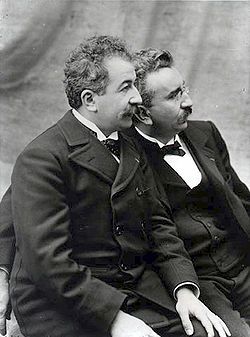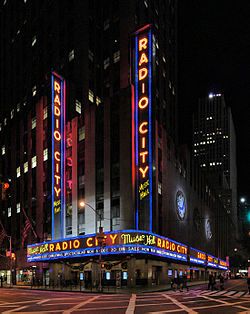This is your morning Open Thread. Pour your favorite beverage and review the past and comment on the future.
Find the past “On This Day in History” here.
December 28 is the 362nd day of the year (363rd in leap years) in the Gregorian calendar. There are three days remaining until the end of the year.
 On this day in 1895, the first commercial movie is screened in Paris.
On this day in 1895, the first commercial movie is screened in Paris.
On this day in 1895, the world’s first commercial movie screening takes place at the Grand Cafe in Paris. The film was made by Louis and Auguste Lumiere, two French brothers who developed a camera-projector called the Cinematographe. The Lumiere brothers unveiled their invention to the public in March 1895 with a brief film showing workers leaving the Lumiere factory. On December 28, the entrepreneurial siblings screened a series of short scenes from everyday French life and charged admission for the first time.
Movie technology has its roots in the early 1830s, when Joseph Plateau of Belgium and Simon Stampfer of Austria simultaneously developed a device called the phenakistoscope, which incorporated a spinning disc with slots through which a series of drawings could be viewed, creating the effect of a single moving image. The phenakistoscope, considered the precursor of modern motion pictures, was followed by decades of advances and in 1890, Thomas Edison and his assistant William Dickson developed the first motion-picture camera, called the Kinetograph. The next year, 1891, Edison invented the Kinetoscope, a machine with a peephole viewer that allowed one person to watch a strip of film as it moved past a light.
In 1894, Antoine Lumiere, the father of Auguste (1862-1954) and Louis (1864-1948), saw a demonstration of Edison’s Kinetoscope. The elder Lumiere was impressed, but reportedly told his sons, who ran a successful photographic plate factory in Lyon, France, that they could come up with something better. Louis Lumiere’s Cinematographe, which was patented in 1895, was a combination movie camera and projector that could display moving images on a screen for an audience. The Cinematographe was also smaller, lighter and used less film than Edison’s technology
 The Lumière brothers, Auguste Marie Louis Nicolas (19 October 1862, Besancon, France – 10 April 1954, Lyon) and Louis Jean (5 October 1864, Besancon, France – 6 June 1948, Bandol), were among the earliest filmmakers in history. (Appropriately, “lumière” translates as “light” in English.)
The Lumière brothers, Auguste Marie Louis Nicolas (19 October 1862, Besancon, France – 10 April 1954, Lyon) and Louis Jean (5 October 1864, Besancon, France – 6 June 1948, Bandol), were among the earliest filmmakers in history. (Appropriately, “lumière” translates as “light” in English.)
(In) 1862 and 1864, and moved to Lyon in 1870, where both attended La Martiniere, the largest technical school in Lyon. Their father, Claude-Antoine Lumière (1840-1911), ran a photographic firm and both brothers worked for him: Louis as a physicist and Auguste as a manager. Louis had made some improvements to the still-photograph process, the most notable being the dry-plate process, which was a major step towards moving images.
It was not until their father retired in 1892 that the brothers began to create moving pictures. They patented a number of significant processes leading up to their film camera – most notably film perforations (originally implemented by Emile Reynaud) as a means of advancing the film through the camera and projector. The cinèmatographe itself was patented on 13 February 1895 and the first footage ever to be recorded using it was recorded on March 19, 1895.
Their first public screening of films at which admission was charged was held on December 28, 1895, at Salon Indien du Grand Cafè in Paris. This history-making presentation featured ten short films, including their first film, Sortie des Usines Lumière a Lyon (Workers Leaving the Lumière Factory). Each film is 17 meters long, which, when hand cranked through a projector, runs approximately 50 seconds.

 On this day in 1895,
On this day in 1895, 
 On this day in 1932,
On this day in 1932,  On this day in 1776,
On this day in 1776,
Recent Comments